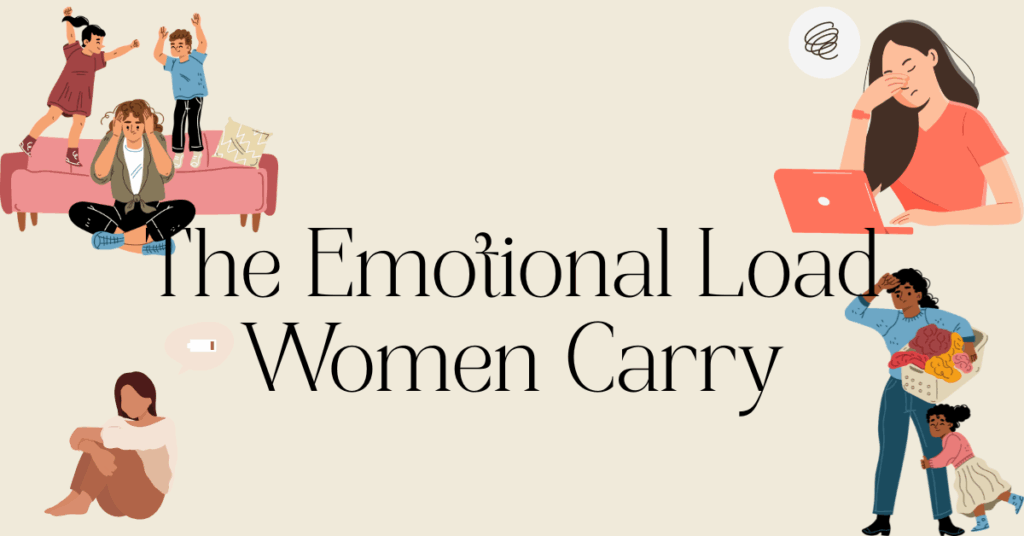Every day, women around the world rise to meet the demands of work, caregiving, relationships, and their communities. While these roles are often embraced with love and strength, many women carry a quiet, often unspoken weight: the emotional load.
This invisible labor goes far beyond household chores or professional duties. It includes the mental tracking of schedules, emotional caretaking, and the constant work of anticipating needs—all of which can silently erode a woman’s sense of balance and well-being.
What Is the Emotional Load?
The emotional load refers to the mental and emotional labor that comes with managing not only your own life but also the lives, feelings, and needs of others. For many women, this looks like:
- Remembering birthdays, appointments, and school projects
- Anticipating a partner’s or child’s needs
- Managing household dynamics and emotional climate
- Supporting friends and extended family through crises
- Being the emotional anchor in both personal and professional spaces
This load often accumulates without acknowledgment or shared responsibility, leading to chronic stress, burnout, and emotional fatigue.
Why Is It So Common Among Women?
Cultural conditioning and traditional gender roles play a significant part. Many girls are taught to be nurturing, self-sacrificing, and emotionally available from a young age. These expectations can follow women into adulthood, where they feel responsible for others’ well-being, even at the cost of their own.
Moreover, women often face systemic pressures—being expected to “do it all” without complaint. This narrative of strength can become a double-edged sword, leaving little room for vulnerability or rest.
The Mental Health Impact
Carrying the emotional load without reprieve can take a real toll. Women may experience:
- Anxiety and constant worry
- Feelings of inadequacy or guilt
- Emotional exhaustion
- Resentment or suppressed anger
- Difficulty sleeping or relaxing
Unchecked, these symptoms can contribute to more serious mental health conditions like depression, chronic anxiety, or burnout. It’s vital that women recognize these signs and seek support before reaching a breaking point.
How to Lighten the Emotional Load
- Name It
Acknowledging that you’re carrying an emotional burden is the first step. Give it language: “I feel responsible for everyone’s needs, and it’s overwhelming.” - Communicate Clearly
Speak openly with partners, family members, and coworkers about the mental and emotional tasks you’re juggling. Delegating isn’t failure—it’s healthy boundary-setting. - Rebalance Expectations
Re-examine where unrealistic standards may be coming from (yourself, society, or others), and allow yourself to redefine what “success” or “being a good woman” looks like. - Seek Professional Support
Therapy can provide a safe space to process the weight you’re carrying and learn strategies to manage emotional labor. A supportive counselor can help you set boundaries, rebuild confidence, and restore emotional balance. - Build a Support Network
Connect with others who understand the burden. Peer support groups, online communities, or honest conversations with trusted friends can help lighten the load through shared understanding.
You Don’t Have to Carry It Alone
At Refinery Counseling, we understand the emotional toll that invisible labor can take. Whether you’re balancing work and family, recovering from burnout, or simply tired of always being “the strong one,” you are not alone.
Therapy offers more than coping tools—it offers a place to lay down what you’ve been carrying, to be seen and supported, and to begin again with clarity and care.
For more on recognizing when you’re overwhelmed, read our cornerstone post “How to Recognize Mental Health Symptoms Early — And What to Do Next“.

